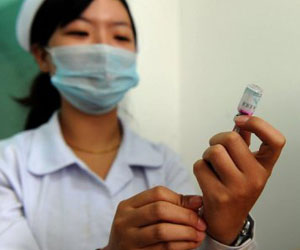Addressing cancer challenges and improving care for millions in South Asia and refugee camps.

South Asian countries – Afghanistan, Bangladesh, Bhutan, India, Maldives, Nepal, Pakistan, and Sri Lanka have a high number of deaths due to cancer (1✔ ✔Trusted Source
Addressing health inequities in Southeast Asia: challenges and opportunities
).
These eight countries form the South Asian Association for Regional Cooperation (SAARC). A recent study published in The Lancet Oncology, conducted by the University of Pittsburgh addresses the critical public health challenges related to cancer control in SAARC.
SAARC includes the Rohingya refugee population in Bangladesh. While fewer people are diagnosed with cancer in these countries, more people die due to it. Lung, breast, oral, and cervical cancer are common and are often diagnosed at the end stage due to poor early detection and treatment.
Advertisement
Cancer Challenges in South Asia
SAARC countries — Afghanistan, Bangladesh, Bhutan, India, the Maldives, Nepal, Pakistan, and Sri Lanka — are home to more than 1.92 billion people. The authors urge policymakers and other stakeholders to implement culturally sensitive approaches to improve cancer prevention, screening, early detection, and treatment in this region.
These issues are compounded in refugee settings, particularly among the nearly one million Rohingya population living in refugee camps in Cox’s Bazar, Bangladesh, where overcrowded camps, limited resources, inadequate infrastructure, and political barriers worsen the situation.
“In the SAARC countries, we face a critical shortage of trained oncology professionals, limited healthcare infrastructure, and significant healthcare disparities between urban and rural regions, all of which impact access to high-quality cancer care,” said corresponding author Saiful Huq, Ph.D., professor in the Department of Radiation Oncology at the University of Pittsburgh School of Medicine and director of the Medical Physics Division at UPMC Hillman Cancer Center. “There is a tremendous need for effective interventions to improve care across the entire cancer continuum – from prevention and diagnosis to treatment and palliative care for people living in these countries, which is almost one-quarter of the world’s population.”
Advertisement
Barriers to Cancer Care in SAARC Nations
In the series of papers, Huq and his coauthors describe barriers specific to each SAARC country and those that are common across the region. These include a lack of awareness about cancer symptoms, risk factors such as smoking and chewing betel nuts, cultural stigmas, myths that cancer is untreatable or contagious, lack of access to healthcare facilities in rural and remote areas, financial difficulties faced by many patients and their families and insufficient government investment in cancer care.
A major barrier to cancer care is the shortage of trained cancer care professionals in SAARC nations — including oncologists, medical physicists, radiation technologists, and oncology nurses —driven by insufficient educational and training programs. Additionally, the SAARC countries face disparities in cancer research funding and a lack of infrastructure to support large-scale comprehensive cancer treatment efforts.
“SAARC nations face a myriad of challenges in providing accessible and equitable cancer care to their diverse populations,” said Huq. “As a first step to addressing these challenges, there is an urgent need to strengthen each country’s national cancer control program to develop strategies to upgrade health care infrastructure, particularly in rural and underserved areas, and investing in the training, education, and retention of skilled healthcare professionals.”
Advertisement
Improving Cancer Care in South Asia
Other key recommendations include expanding cancer registries to improve data collection that will inform policy decisions for cancer control efforts and strengthen research capacity; launching public health campaigns to promote prevention; promoting early detection and awareness of cancer risk factors; and fostering regional collaboration and partnerships to ensure better access to cancer treatment. The papers emphasize that regional networks could play a significant role in advocacy and resource mobilization, particularly for countries with limited healthcare budgets.
Among the Rohingya refugee population, cancer — particularly hepatocellular carcinoma, oral cancer, and cervical cancer — is a rising concern. The papers call for culturally sensitive and multi-pronged interventions to address these issues, including partnerships with local leaders and communities to raise cancer awareness, reduce stigmas, improve health literacy, and strengthen capacity for cancer screening, treatment, and palliative care.
To raise awareness and drive policy changes, Huq will launch this series of papers on December 12 at the Global Health Catalyst Summit in Bangladesh to an audience that will include Nobel laureate Muhammad Yunus, chief advisor of the Interim Government of Bangladesh; ambassadors from SAARC countries; and other stakeholders.
Source-Eurekalert



